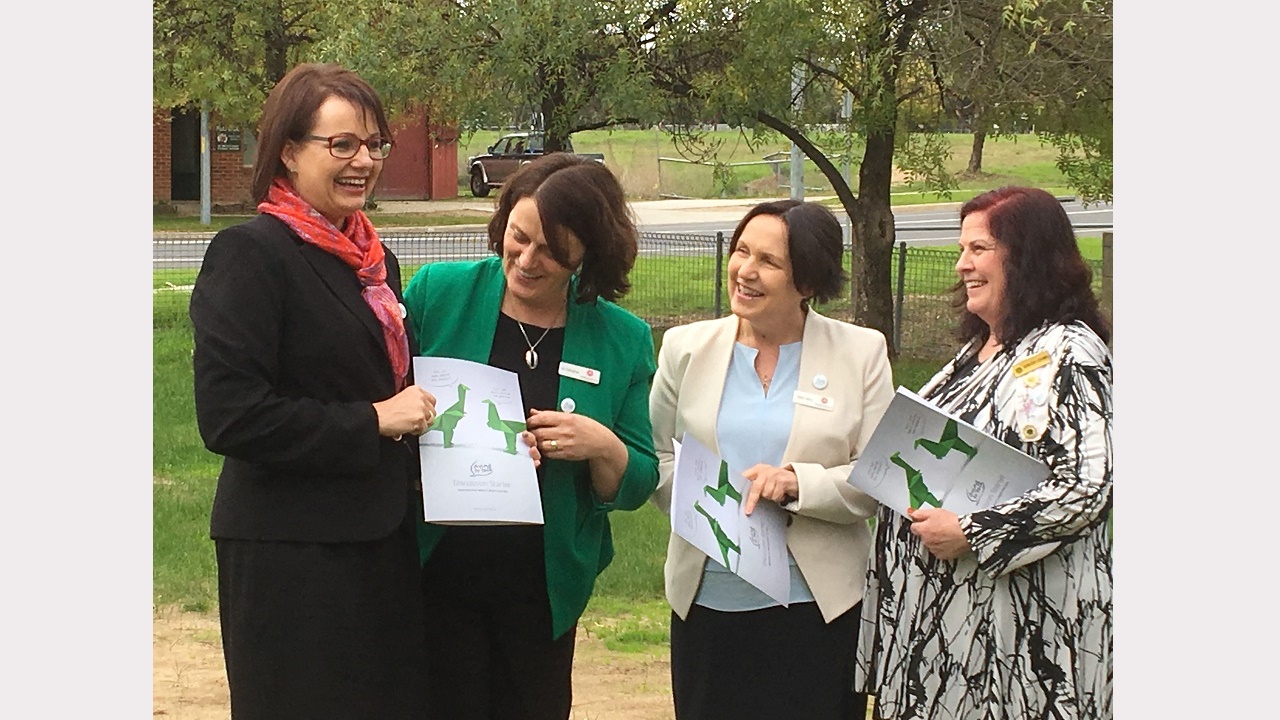New step-by-step guide supports discussion of end-of-life wishes
New step-by-step guide supports discussion of end-of-life wishes
by Heather Wiseman
Wednesday, May 25, 2016
Today Health Minister Sussan Ley launched a new guide which will support people to discuss death, dying and their end-of-life wishes.
The Dying to Talk Discussion Starter was launched in Albury, NSW, as part of National Palliative Care Week (22-28 May).
The guide was written by Palliative Care Australia (PCA) and its national roll-out is being supported by the Country Women’s Association (CWA).
PCA president Professor Patsy Yates said the organisation was pleased to be partnering with the CWA, as the largest women’s organisation in Australia.
“The Dying to Talk Discussion Starter will support the work of the CWA’s 20,000-strong members, as they strive to make life better for regional, rural and remote families," Professor Yates said.
“CWA members will use the Dying to Talk Discussion Starter in their communities to talk about death and dying and the need to plan for the future.
“With PCA support, the CWA will also be implementing a ‘train the trainer’ model of awareness raising in each state and territory.”
Speaking at the launch, CWA national president Dorothy Coombe said it was important that death was not a taboo subject and that people were supported to have discussions that they felt comfortable with.
“The members of CWA are strong, invincible women who are unafraid of tackling the hard issues and fighting for the rights of all," Mrs Coombe said.
"They are unafraid to address topics where others fear to tread, including talking with and encouraging others to raise the subject of death, dying, wills, organ donation, palliative care and other personal needs.”
She said having a simple discussion can leave people equipped to honour friends’ and families’ wishes. She found this valuable when it came to putting her father into care, while caring for her mother who had fast-onset dementia and when her sister passed away with cancer.
“It was a little more difficult when my son passed with melanoma cancer as he was young with a partner and two young boys.
"Like all young people, you do not think you need to have that discussion yet and tend to put it off for the future.
"But you do, as it makes it so much easier for the family to feel that they are doing the right thing during a sad, emotional, heart breaking and tough time.”
Mrs Coombe said she was pleased the CWA would support people in rural and remote Australia to normalise these important discussions, so they occur before people become too unwell to speak for themselves.
“The Dying to Talk Discussion Starter will really help people to start the conversation in a way that reflects their values and personality, and so is perfect for them.”
Professor Yates said it is never too early to start discussions about care preferences at the end of life. However, a recent PCA survey showed only 28% of people had discussed end-of-life care with their family, despite 82% saying it was important to do so.
Download your copy of the Discussion Starter at www.dyingtotalk.org.au
